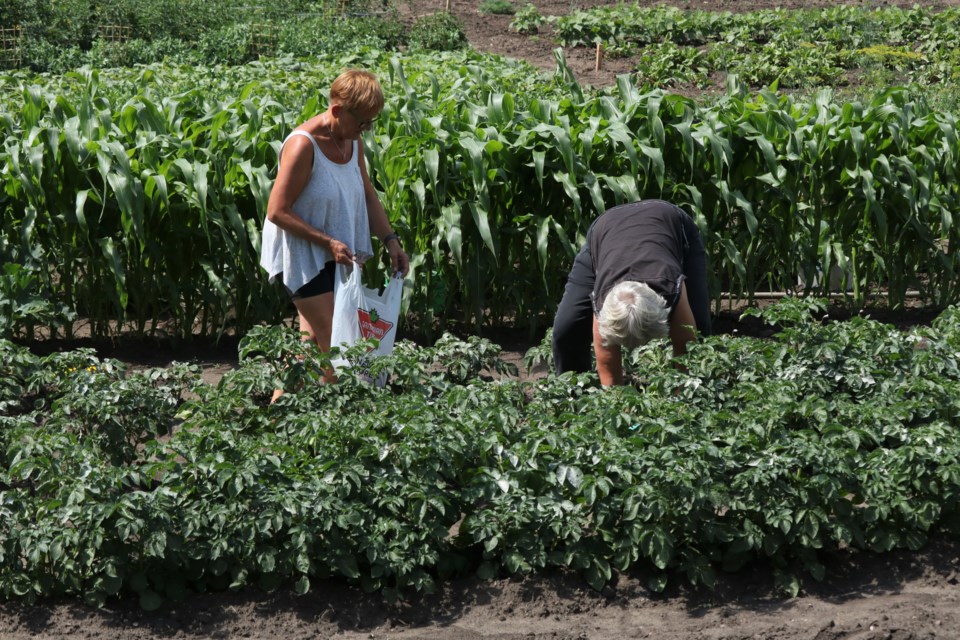YORKTON - Snow, rain, wind…we’ve had them all in the last few weeks! This has certainly been an unsettled spring. Some of us may not have our gardens planted like we would in a regular year, but we’ll do the best we can! And it will all be okay!
There aren’t as many gardening shows on TV as there used to be, but we still have a lot on tape, and one that we always enjoyed was a show called “The Manic Organic”. It was hosted by Antony John, an organic grower near Stratford, Ontario. Not only was he wonderfully entertaining, but he was a passionate gardener, dedicated to organic gardening.
In this particular episode, Antony was talking about the beautiful gourmet greens that they grow on their farm. There was a variety of lettuces, like crisp baby romane, and a luscious red oak leaf. My, they looked delicious when he assembled them into a salad with grilled tomato slices and local goat cheese! But while he was munching on these delightful lettuces as he cut them out in the field, he mentioned something about their “terroir”. Terroir (pronounced “terr-wah”) means “sense of place”, but in gardening language, it means that the place where you are growing something affects how it will taste. So if you grew red oak leaf lettuce in your garden, and we grew it in ours, it might not taste the same because of the different characteristics in our soils.
The idea of terroir originated in French winemaking, because growers realized that wines from various regions or even various regions of the same vineyard had distinct flavours. All kinds of factors came into play: the composition of the soil, what slope the vines were planted on, how much rain they had. These factors make wines from a certain region unique; that even if someone planted the same grapes and made the wine the exact same way somewhere else, it would not taste the same. Winemakers carefully reserve the right to protect the kind of wine they make in their area because of terroir. So that’s an interesting factoid !
For gardeners, then, terroir means that our vegetables will taste better if we do all we can to enhance where they grow. I’m sure that at some point in your life, you tasted a fresh tomato or a crisp cucumber that was absolutely bursting with flavour, and much more delicious that you had ever tasted before. Did you wonder why that was? To me, the starting point is healthy soil. Adding nutrient-rich organic matter to your soil, and keeping it free of chemicals, is bound to result in a better soil, and better taste in your veggies. They draw in what exists in the soil, so you want it to be the best that it can be!
As we have shared cups of tea in the past, we have often talked about the value of compost, and yes, I’m going to say it again! The soil in our gardens needs replenishing to make it as rich and fertile as we want it to be; that means adding compost. Making compost is the very complicated (not!) process of saving organic matter, helping it to break down, and adding it back to the soil. You can make compost in an ice cream pail, or in a composter, or in a large bin made of wooden pallets. You can even just bury organic matter ( sometimes called the dig-and-drop method of composting, or trench-composting) in a trench about ten inches deep in your garden, cover it over, and let Mother Nature do her thing! Whatever method works for you, your soil will thank you! Visit the Hort society at www.yorktonhort.ca and see what’s new. Thank you to our friend at YTW for their great work. Gardeners, have a good week in the garden!






